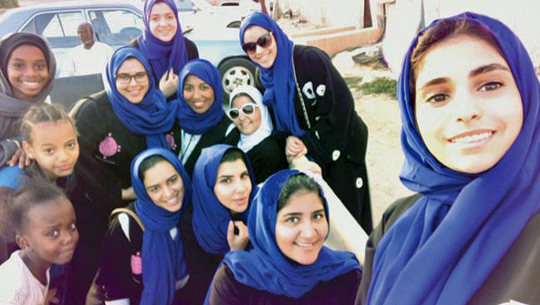Jeddah, Jun 2: Ramadan is all about feeling the suffering of the poor, and is the month of giving.

Charity work takes different shapes during the holy month, from distributing dates and water at traffic signals and intersections to reaching out to the needy in their homes.
Lina Tahlawi, 24, and a group of young women are keeping up with the habit of distributing food to the needy during Ramadan.
“I believe the main drive behind it all is that we share the same passion for helping others,” Tahlawi, founder of the Bassmat Al-Badr non-profit organization, which is involved in charity work, told Arab News.
A few hours before iftar time, which coincides with sunset, the volunteers knock on doors in needy neighborhoods to distribute hot and cold food and drinks among needy families. The volunteers cover several areas around Jeddah, mainly in the south.
Needy families, orphans and old jobless people are given priority, he said.
Tahlawi said food distribution is the most difficult part of the process, but the rewarding feeling the team gets is greater than the hard work.
“Bearing the heat is insignificant when we see people's smiles while distributing food, which is the greatest reward,” she said.
Hot meals consist of rice, chicken and samosas along with water, dates, juice or laban (yogurt). Croissants or cupcakes are also distributed.
Bassmat Al-Badr is named after Lina Tahlawi's father Badr Tahlawi, whose death in 2010 inspired her to embark on charity work dedicated to his soul.
The initiative aims to empower women through education and volunteer work.
“The team that works in Bassmat Al-Badr works with love and happiness with all their heart, even though it's completely voluntary work,” she said.





Comments
Add new comment